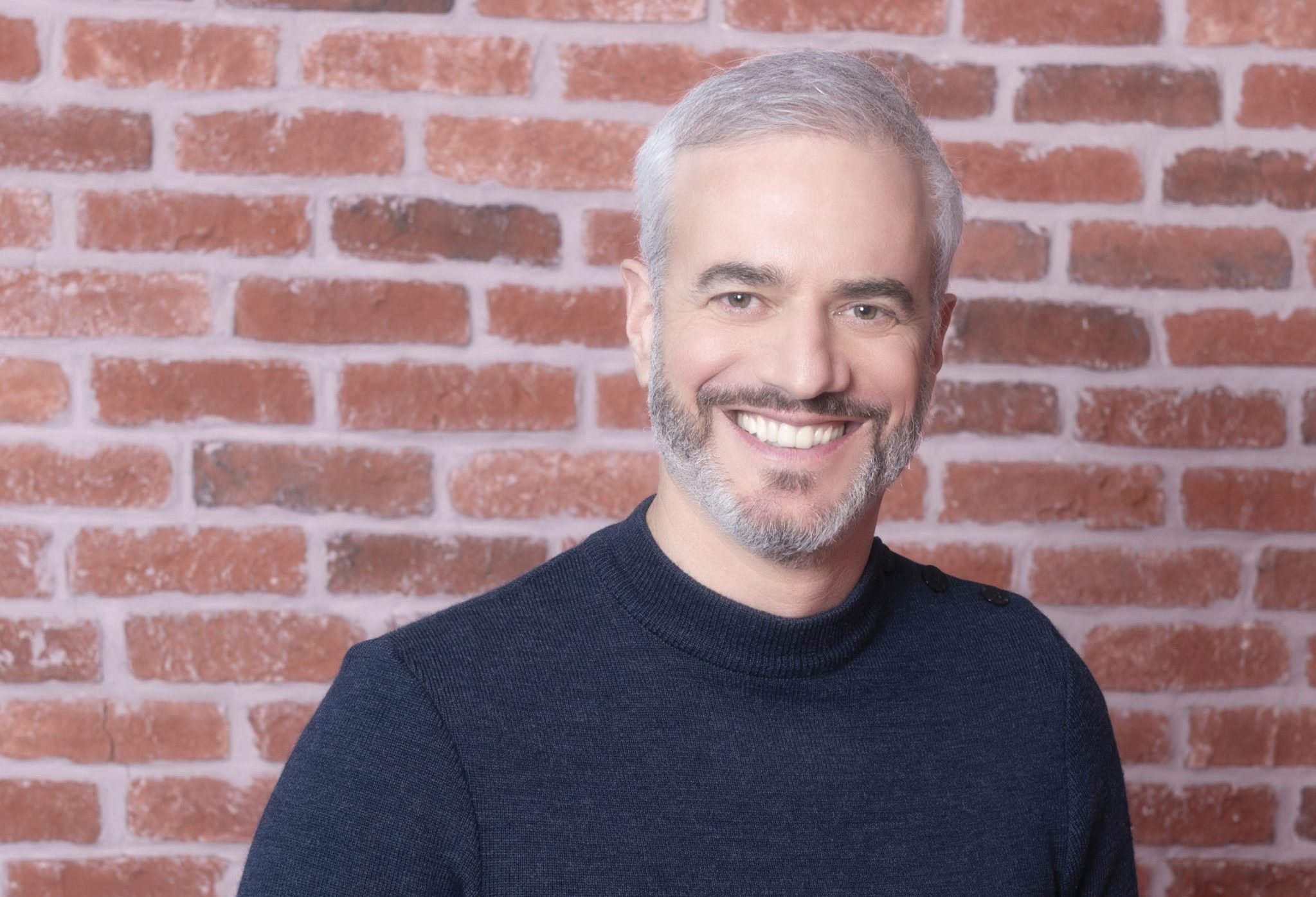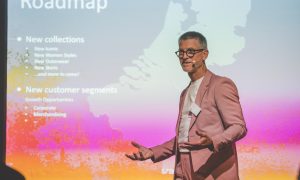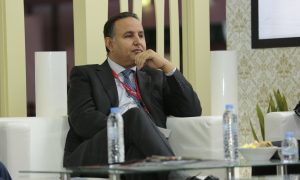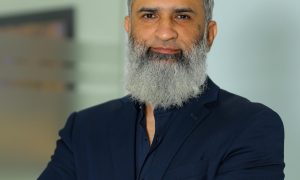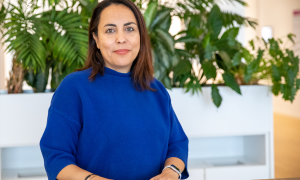It is easy to underestimate the gaming market, especially if you are not a gamer.
But in 2022, the global gaming market soared above a staggering $180bn in revenue, bigger than Hollywood and the music industry combined. Top games are now earning more than big blockbusters. The Grand Theft Auto V game, for example, raked in $6BN. Compare that to Avatar, the highest grossing movie ever at $2.8BN.
Mobile phone games accounted for 45 percent of that gaming revenue, and as mobile penetration rates and smartphone usage continue to accelerate on a global scale, mobile games revenue is on track to surpass the 100 billion dollar mark by the end of the year.
In that market, Gameloft has emerged as a leader, constantly defining the realm of mobile gaming. At the head of this gaming juggernaut is Alexandre de Rochefort, who from day one has steered the company through the ever-evolving landscape of digital entertainment.
De Rochefort’s journey in the gaming industry is storied. From his early days as a sell-side analyst at Schroders to becoming a CFO of Gameloft in its startup stages, de Rochefort’s path is marked by a deep understanding of the gaming market’s nuances.
“I was young, and Gameloft was a small company with a few employees at the time. I really hesitated accepting the job, but founder Michel Guillemot [who had previously founded with his brothers gaming behemoth Ubisoft] totally convinced me.”
Early years and the mobile revolutions
This year was 2000. The mobile gaming landscape was barren, and the devices were incredibly limited. Launching as a pure mobile gaming specialist in this era was not just visionary; it was audacious. Gameloft, however, saw beyond the limitations, imagining a world where mobile devices were gateways to captivating digital experiences.
De Rochefort recalls these years with a blend of nostalgia and pride. “We had fond memories of those difficult few years. We were right, but we were right too early, and this can be deadly. Fortunately, our shareholders were solid enough to back us.” Gameloft’s early gamble was vindicated quickly as the company turned profitable by 2003, an astonishing feat demonstrating its strong market foresight.
The first big change to mobile gaming came in 2002, when Nokia’s 3410, the first phone with Java and 3D graphics, revolutionized mobile gaming. Gameloft, riding this wave of technological innovation, soared from zero revenue in 2003 to 100 million Euros in revenue by 2007. “We were surfing the wave,” de Rochefort recalls. “Each tech advance meant a better gaming experience.”
But things were just getting started. In July 2008, Apple announced the iPhone App Store, kicking off the second revolution in mobile gaming. This too was pivotal for Gameloft, who doubled its revenue from 100 million to 208 million Euros by 2012, driven by the surge in iPhone and subsequently Android gaming.
The secret to Gameloft’s thriving success was not just in being at the right place at the right time but also in the extraordinary care put into the games created. De Rochefort emphasizes the company’s ethos. “Our mission status is ‘Amaze the world so that everyone can enjoy a moment of happiness’. We put extra care into our games. We value passion, art, craft, and trying new things, and we place these values on the top shelf.” It was this differentiation and innovation that resonated within their products, allowing players to feel the magic that Gameloft aimed to share with the world.
Changing games
In 2018, the gaming market was at a crossroads with the free-to-play (F2P) and hypercasual models dominating the scene. These games, designed for short bursts of play, monetized through advertising and in-app purchases, challenged Gameloft’s depth-focused approach. Faced with the decision of whether to join the hypercasual wave, Gameloft chose a different path. “Everyone thought we should tackle hypercasual, but we did not. As a mobile gaming company, we should not be pure mobile,” reflected de Rochefort.
Gameloft saw the emerging “black clouds” of customer acquisition costs and market saturation. Instead of joining the fray, they made the bold move to PC/console gaming. “We were investing tens of millions in mobile gaming at a time when every new mobile game was more a lottery ticket than a real business because of oversaturation,” de Rochefort explained, emphasizing the decreasing success ratio in the mobile arena and the need for strategic evolution. “We had to tell our top teams in Montreal or in Barcelona for instance, Stop what you are doing.”
The strategic shift from mobile-first to including PC and console platforms presented Gameloft with internal challenges, particularly in securing team buy-in. The company was venturing into territories ruled by industry giants, and “For us this required a cultural shift within the teams,” says de Rochefort, whose team was accustomed to the mobile market’s quick turnaround times and specific development processes. De Rochefort had to not only convince the stakeholders of the financial viability of this move but also instill a shared vision across the team.
The wave of the future
Gameloft’s strategic pivot also included a strong bet on new business models such as subscriptions. As the biggest supplier to Apple Arcade with seven live games and more in the pipeline, Gameloft was at the forefront of the subscription model for mobile gaming, part of the first wave of releases on Apple Arcade and Microsoft’s equivalent—Gamepass.
“We now work with Netflix, delivering three games including ‘Asphalt Xtreme’, ‘Lego Legacy’, and ‘Country Friends’,” de Rochefort shares with a sense of pride. This partnership is part of Gameloft’s broader embrace of subscription services, which he believes elegantly counter the inherent weaknesses of the F2P mobile model.
Subscriptions have proven their worth across various entertainment mediums, and Gameloft has witnessed this success firsthand with ‘Disney Dreamlight Valley’ on Microsoft’s Gamepass, achieving over two million downloads. This success in the subscription space is something de Rochefort sees as a harbinger of the industry’s future, aligning with the company’s vision of providing immersive, rewarding experiences without relying on ad revenue.
Over the years, Gameloft has become a trusted partner in the industry, perfecting ‘games as a service’ for some household names. IP owners like Disney and Universal, as well as with platform giants such as Apple, Google, Sony, and Microsoft have been central to Gameloft’s growth. These relationships, built on trust and mutual respect for IP and brand legacy, have enabled Gameloft to curate unique gaming experiences that resonate with players globally.
Looking to the future, Gameloft remains focused on the technological advancements that continue to shape the industry. De Rochefort is particularly intrigued by the possibilities that AI presents in creating deeper, more authentic experiences within the gaming worlds Gameloft creates.
As Gameloft continues to evolve, de Rochefort reflects on the company’s journey. “When we started in 2000, many competitors emerged, and we are one of the few survivors. The reason is our agility. We adapt, adapt, adapt. We’ve stayed true to our DNA but have never shied away from change.” This ethos of adaptation and commitment to the core values of gaming is what de Rochefort believes will continue to guide Gameloft through the ever-changing landscape of digital entertainment.
Click here to read and download the full article.

